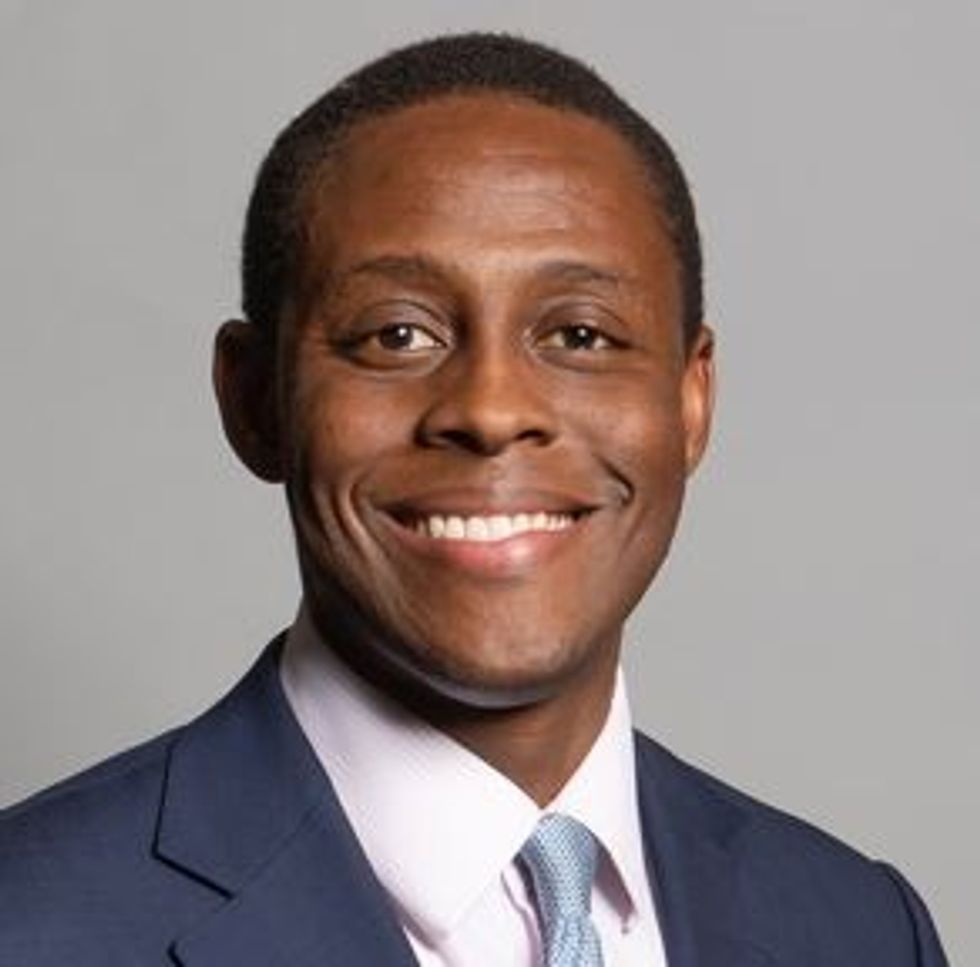A PROMINENT Conservative party commentator believes the Tories have become “complacent” in reaching out to ethnic minority politicians and voters.
With Rishi Sunak as prime minister and ministers such as Suella Braverman, Kemi Badonech and James Cleverly, the Tory administration has one of the most diverse cabinets in history.
However, Tim Montgomerie, a special advisor to former prime minister Boris Johnson, said the party has not reached out to all ethnic minority communities.
At an event hosted by thinktank The UK in a Changing Europe (UKICE) at the Tory party conference on Monday (2), he said: “If you look at the kind of ethnic minority we promote, a lot of them are privately educated and are from quite prosperous backgrounds.
“As a party, are we really increasing ethnic minority candidates from more disadvantaged communities?”
In 2001, there were no Conservative MPs from minority backgrounds. The 2010 general election saw an increase in the number of ethnic minority MPs in the Conservative party – from two to 11.
There are currently 22 minority ethnic Tory MPs, as a result of a concerted effort to promote more non-white candidates and modernise the party.
However, despite this progress, around six per cent of the Conservatives’ 365 MPs are from a non-white background.
Ethnic minorities constituted 18 per cent of the British population at the last census in 2021.
“We have progressed in terms of ethnic minority representation, not just in candidates, but at the top of the party,” Montgomerie said.
“One of the most exciting things about Britain at the moment is the fact that we have an Asian prime minister and it’s completely non-controversial and welcomed. That’s a mark of how far the country has come and how far the part has come.
“However, I think we’ve also become a bit complacent. The energy that we (Tory party) had to find people who look like Britain, who were immersed in Britain’s various communities, has sort of dissipated. We thought ‘we’ve sorted it’ because the criticism that we got on this front reduced.
“If you look at Laura Kuenssberg’s interview with the prime minister (on the BBC last Sunday), the word that still comes up associated with him and with the party is ‘rich’, somewhat unfairly – but that’s still seen as our primary problem.

“That’s probably the primary problem we have with candidate diversity as well.” Since 2019, the Conservatives’ voter base has been approximately 97 per cent white. These voters are also statistically more likely to be male, southern and to have voted to leave the EU.
Having ethnic minority MPs from different social backgrounds will help attract more ethnic minority votes for the Tories, Montgomerie said.
During his time as editor of the influential ConservativeHome website (which he set up) between 2005 and 2013, Montgomerie said he would do “percentage watches” of how many women and ethnic minorities were supporting the party.
He described it as a “big part” of media discussions and internal discussions within the party.
“We need to go back to that energy we used to have and realise that the progress we’ve made is actually slightly lopsided and we still have work to do,” he said.
Bim Afolami, the MP for Hitchin and Harpenden, said the Tories can attract a younger cohort of future politicians from ethnic minority communities. He explained that they often hold more Thatcherite values (coined after former prime minister Margaret Thatcher) than their white counterparts.
He gave an example of a recent lecture he gave at Middlesex University, where he noticed a “stark difference” in attitudes between white and non-white students for their plans after university.
Afolami said white students were focused on working in the public sector and were much keener to help people, while the ethnic minority students were more concerned about “making money and being successful”.
“I was struck by that,” Afolami said. “A few months before that, I was giving a talk with some partners at a well-known professional services firm. They brought in some of their graduates to listen to the talk… people aged between 22-25, earning high five figures, soon to be in six-figure salaries.

“The percentage of ethnic minorities [in the room] was at least two-thirds. I thought, ‘what’s going on here?’
“When I left Oxford University 16 years ago, I knew the firm very well and it was very, very white. I spoke to some of the partners afterwards and asked, ‘do you guys find this weird?’ And they said, ‘these are the best people who apply and really want to earn the money and we don’t get woke nonsense from these guys’.
“There is something very different now. You’re seeing younger, educated ethnic minorities who resemble what my party thinks of as the Thatcher children of the 1980s and 1990s. Their attitude much more resembles that than white students.”
In the 2019 general election, the Conservative party won 20 per cent of the ethnic minority vote, whereas Labour secured 64 per cent. However, an ongoing research project by UKICE and FocalData shows a younger generation of voters are expected to break the traditional voting patterns among ethnic minorities.
James Kanagasooriam, chief research officer at FocalData, said his analysis showed the personal values of a BAME voter don’t always align with that of the political party that they choose.
“The most interesting thing from the data is the paradox that personal values – whether they are authoritarian or liberal – if they are BAME, they do not necessarily translate into the same structure if they are political,” said Kanagasooriam. “Whereas this is very distinct if you are not BAME.”

There is not as much data about people from ethnically diverse backgrounds compared to any other section of the electorate. The last full-scale academic study is more than a decade old.
Since then, the UK has seen three general elections and an EU referendum.
However, a recent study by the Guardian found that while British Indians continue to display a preference for Labour, the party’s historical advantage among other ethnic minorities has been eroded. In 2010, a survey identified British Indian support for Labour at 61 per cent, while 24 per cent supported the Tories.

In 2021, the Guardian’s polling suggested just four in 10 British Indians identified with the Labour party, while three in 10 supported the Conservatives, and around one in 10 identified with other parties.
Kanagasooriam is carrying out a largescale study into voting patterns within BAME communities, with the full report expected to be published next year.
His co-researcher, Sophie Stowers from UKICE, said she expected the report to show a more “straightforward link” between personal and political values for younger ethnic minorities.
“Given half of the UK’s minority population is concentrated in three places – London, Birmingham and Manchester – and these are traditionally Labour-leaning cities, if we do continue to see a shift towards a more straightforward link between political and personal values – which might happen among younger generations – it would be interesting to see how that support sort of splinters,” said Stowers.
“My presumption would be it will not be in one direction, it will be towards different political parties.”


















 Martin Rosenbaum (Pic credit: rosenbaum.org.uk)
Martin Rosenbaum (Pic credit: rosenbaum.org.uk) “This judgement is important for journalists and journalism,” says Eastern Eye’s executive editor, Shailesh Solanki.
“This judgement is important for journalists and journalism,” says Eastern Eye’s executive editor, Shailesh Solanki.

